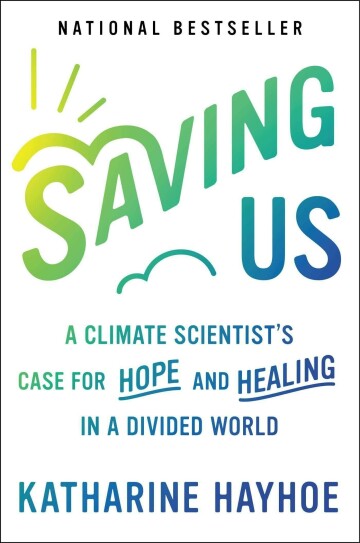Can't stop the feeling

Attentive. Concerned. Thoughtful. Humane. Understanding. Hospitable. Generous. Loving. Compassionate.
These are the different ways to describe and explain what it means to be a caring person.
Who and what do you care about? Why are they important to you? In what ways do you express how much you care about them?
In her book, Saving Us: A Climate Scientist’s Case For Hope And Healing In A Divided World, Katharine Hayhoe argues that to engage and encourage another person to talk about climate change you don’t just talk about the latest data and information or even the bad-news warnings. More importantly, you talk about what each of you care about and then share what you may have in common.
By talking about what you care about, you can then begin talking and thinking about how the things you care about are being affected by climate change.
“When you find out what people care about, and connect climate impacts directly to the values people have, they can see that caring about climate change is already integral to who they are,” stated Hayhoe.
On April 26 of last year, Time Magazine declared that climate is everything. If this is true, then everything that you and I care about will be impacted by climate change.
So, who are you? What do you care about? And if you think about it, has anything that you care about already been impacted by climate change?
At 67, I’ve accumulated a number of people, things and experiences that I care about. Each one of them has truly enriched and nurtured my life. Often wonder how empty my life would be without them.
There’s my two adult sons. Two daughter-in-laws. My grandson and granddaughter. Three younger sisters. Several nephews.
The Loaves and Fishes community. Ten four-legged friends. Numerous people from Duluth and around the world who work with me on climate change.
In my small room on the third floor of the Dorothy Day House, there’s the books, a Yamaha keyboard leaning against the wall, 10 plants and one window in my room where I can look out at the lake and city. Also, there’s my new garden in the front yard.
There’s the card that the Henderson family gave me when they left the community and moved to Turkey. My younger son’s lacrosse jersey. My older son’s artwork.
And there’s that special someone down on the 19th block of Jefferson Street who keeps me grounded and feeling grateful for still being around.
If we’re going to figure out how to maneuver ourselves through this climate emergency, then we have to begin with recognizing what we care about and acknowledging how much we care about them. It’s a feeling, an emotional and moral compass to guide us through the coming days, weeks, months and years. In the most challenging and difficult moments, it may be the only thing that keeps you going and moving forward.
As I read Hayhoe’s words, I find myself playing the song “Can’t Stop The Feeling” in my head. Written and sung by Justin Timberlake, the lyrics remind me of the power of caring, and how it affects one’s soul and body.
“I’ve got this feeling inside my bones. It goes electric wavy when I turn it on. All through my city, all through my home, we’re flying up, no ceilin’, when we’re in our zone. I got that sunshine in my pocket. Got that good soul in my feet…Got this feeling in my body. Can’t stop the feelin’.”
When you care about someone or something, you can feel it in your bones. You can feel it in your chest. And you can feel it in your hands and legs.
When you care, you make a commitment. You find a greater sense of connection with the world. You cultivate deeper relationships with the people and things that are valuable and precious.
In this climate-change world, with so many difficult and challenging climate events taking place every day, we have to remember what we care about. It’s what will sustain us, make us more resilient and help us become a better version of ourselves.
By caring about others and other things, we will become more curious, compassionate and courageous. In this climate emergency, we need all three of them if we are to find ourselves making it to the other end.
